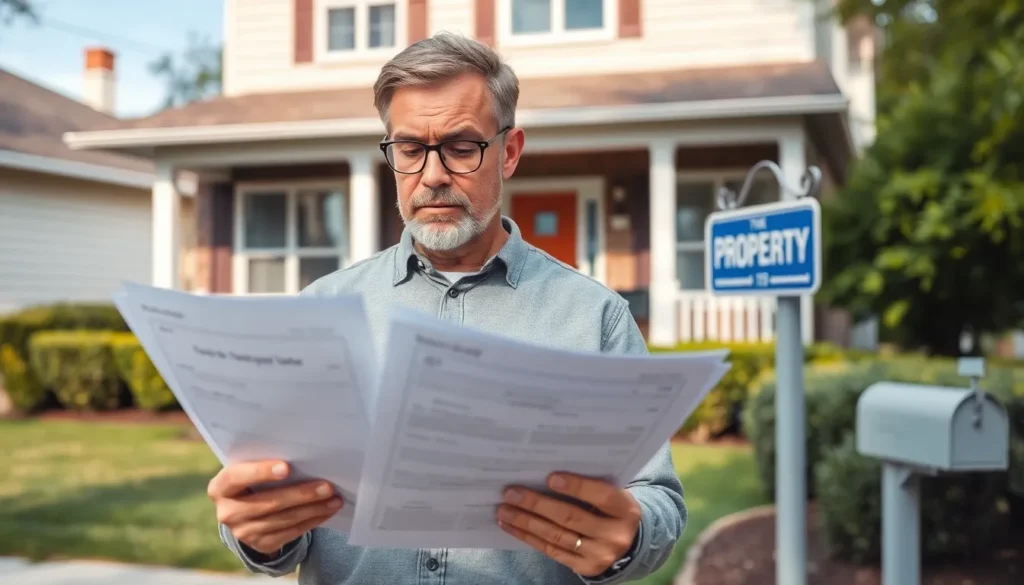Table of Contents
ToggleHouse hacking can be a game-changer for anyone looking to boost their income while living in their own home. Imagine sipping your morning coffee while your tenant helps pay the mortgage—sounds dreamy, right? But before diving headfirst into this financial adventure, it’s crucial to navigate the often murky waters of local regulations.
Overview of House Hacking
House hacking involves renting out a portion of a home to generate income while also covering mortgage costs. This strategy allows homeowners to utilize extra space for financial benefit, making it a popular choice among those with larger properties. Many individuals consider transforming basements, garages, or spare rooms into rental spaces to maximize their profit potential.
Local regulations significantly impact the feasibility of house hacking. Guidelines can vary widely by city and state, so thorough research is essential. Zoning laws often dictate how properties may be occupied, and some areas require licenses for short-term rentals. Failure to comply with such regulations may lead to fines or eviction of tenants.
Homeowners might find it helpful to consult local housing authorities for clarity on regulations affecting their rental practices. Furthermore, it’s crucial to investigate any homeowner association rules that may restrict rental activities. Each situation can differ, so each homeowner should analyze their specific conditions.
In addition to compliance, insurance considerations also play a key role in house hacking. Standard homeowner policies typically do not cover risks associated with renting. Updating coverage to reflect rental activities may protect homeowners from potential liabilities.
Overall, successful house hacking relies on understanding both the opportunities and limitations presented by local regulations. A well-informed approach increases the likelihood of a smooth and profitable rental experience.
Understanding Local Regulations
Understanding local regulations is essential for anyone considering house hacking. Homeowners must navigate complex rules that vary by location.
Zoning Laws
Zoning laws govern property usage in specific areas, influencing what homeowners can do with their space. Local authorities set these laws, often designating residential, commercial, or mixed-use zones. Residents should check local zoning ordinances to determine if house hacking is permitted in their neighborhoods. Certain restrictions may limit occupancy rates or types of rentals allowed. When exploring house hacking opportunities, understanding these rules can help avoid costly violations. Consulting with a local real estate attorney or zoning official provides clarity on allowable uses.
Rental Licensing Requirements
Rental licensing requirements vary significantly by city and state, complicating house hacking plans. Many regions require homeowners to obtain a rental license before leasing out part of their property. This licensing process often includes inspections to ensure the property meets safety and health standards. Failure to secure the necessary license can lead to fines or forced eviction of tenants. Homeowners should contact their local housing authority for specific licensing requirements. Researching these regulations ahead of time prevents misunderstandings and promotes successful rental arrangements.
Types of Properties for House Hacking
House hacking accommodates various property types, offering diverse opportunities for homeowners to generate rental income. Understanding these options is essential for maximizing potential returns.
Single-Family Homes
Single-family homes provide a straightforward choice for house hacking. Homeowners can rent out spare rooms or basements to tenants, creating additional income streams. Renting out these spaces allows families to offset mortgage costs significantly. Local regulations often permit this arrangement without extensive legal hurdles. Some homeowners convert garages into livable spaces, further increasing rental potential. Engaging with local housing authorities helps clarify property use and associated requirements.
Multi-Family Units
Multi-family units present robust opportunities for house hacking. These properties typically include duplexes, triplexes, or fourplexes, where homeowners occupy one unit while renting out the others. This setup often results in higher overall rental income compared to single-family homes. Many areas consider these properties ideal for investment, making them attractive options for aspiring landlords. Owners must verify local zoning laws and rental regulations to ensure compliance. Understanding tenant rights and lease agreements is vital for managing multi-family properties effectively.
Benefits of Complying with Local Regulations
Complying with local regulations offers several advantages for homeowners engaging in house hacking. First, understanding and adhering to zoning laws can prevent legal issues. Avoiding fines and penalties ensures that income remains intact.
Ensuring safety and health standards by obtaining the necessary licenses enhances tenant satisfaction. Happy tenants often lead to longer leases and stability in rental income. Many municipalities conduct inspections, and passing these checks demonstrates a commitment to tenant welfare.
Engaging with local housing authorities reveals valuable resources and guidance. Accessing information about rental regulations helps homeowners navigate potential complexities. Knowing this information supports informed decision-making, beneficial for both landlords and tenants.
Obtaining suitable insurance coverage provides additional peace of mind. Covering potential risks associated with rental activities protects against unexpected liabilities. Updating homeowners’ insurance to reflect rental operations ensures compliance and coverage adequacy.
Understanding tenant rights enhances the rental experience for all involved. Educating oneself about lease agreements and tenant laws fosters better landlord-tenant relationships. Effective communication about rules builds trust and cooperation.
Moreover, compliance with local regulations enhances property value. Well-managed properties often attract tenants willing to pay higher rents. Increasing rental income reflects positively on the homeowner’s financial stability.
Lastly, participating in local housing networks can lead to community support. Engaging with other landlords provides insights into best practices and regulatory updates. Building connections in the community creates opportunities for collaboration and shared resources.
Challenges and Considerations
Navigating local regulations poses significant challenges for homeowners considering house hacking. Zoning laws, for example, affect property usage and dictate the types of rentals allowed in different locations. Homeowners face the need to verify these laws, which vary by city and state, so they can ensure compliance with neighborhood guidelines.
Obtaining a rental license is often a prerequisite before leasing out any part of the property. While some regions may require inspections to meet safety and health standards, others may have fewer restrictions. Understanding these specific requirements is crucial to avoid legal issues that could lead to fines or tenant disputes.
Insurance considerations also come into play. Standard homeowner policies rarely cover the unique risks associated with renting space. Updating coverage to reflect rental activities safeguards homeowners from potential liabilities that may arise during the rental process.
Tenant rights form another essential factor for homeowners. An informed approach fosters better landlord-tenant relationships and promotes compliance with local rental regulations. He or she should prioritize learning about lease agreements and tenant rights to navigate any issues effectively.
Engaging with local housing authorities can provide valuable resources and insight into compliance. Homeowners gain access to guidelines that help them stay informed about changing regulations or new requirements. Developing connections with local housing networks also offers community support and shared best practices.
Ultimately, maximizing the benefits of house hacking requires homeowners to balance opportunities and limitations presented by local regulations. By prioritizing compliance, they enhance the potential for smooth and profitable rental experiences while maintaining property value.
Conclusion
Navigating local regulations is crucial for homeowners considering house hacking. By understanding zoning laws and rental requirements, they can avoid potential pitfalls and ensure a smooth rental process. Compliance not only protects against fines but also enhances tenant satisfaction and property value.
Homeowners should prioritize engaging with local housing authorities and exploring community resources for support. This proactive approach can lead to successful rental experiences, maximizing income while maintaining compliance with regulations. Ultimately, a well-informed strategy will pave the way for profitable house hacking ventures.







